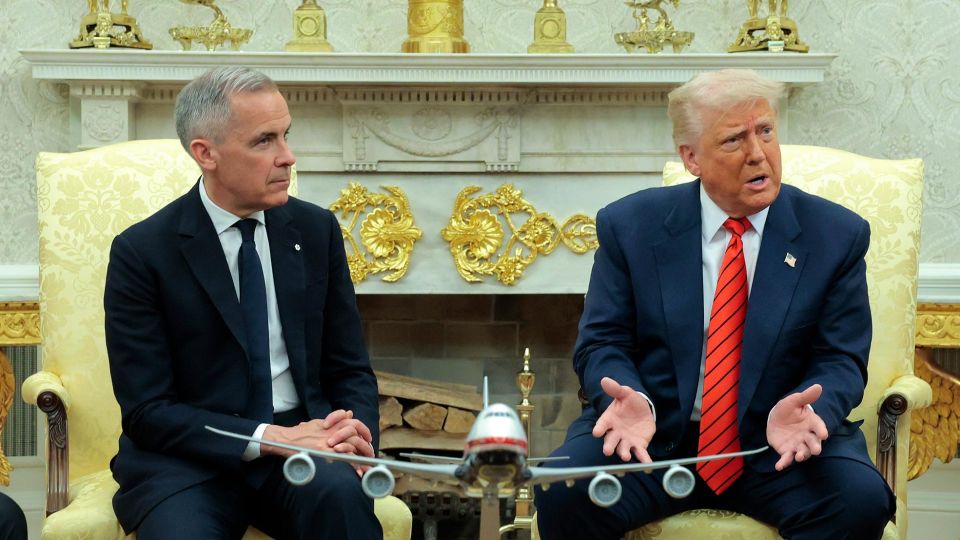Trade Tensions Unravel: Trump's Canada Claims Debunked by Export Numbers

In a tense diplomatic encounter on Tuesday, President Donald Trump once again downplayed the critical economic ties between the United States and Canada during his meeting with Canadian Prime Minister Mark Carney. The president's remarks, which appeared to deliberately understate the significance of the bilateral trade relationship, raised eyebrows among economic experts and diplomatic observers.
Trump's characterization of the US-Canada trade partnership seemed to contradict well-established economic data, suggesting a potentially provocative approach to international economic diplomacy. The meeting highlighted ongoing tensions in trade negotiations and underscored the complex dynamics of North American economic relations.
Despite the president's minimizing rhetoric, the United States and Canada maintain one of the world's most integrated and valuable trade partnerships, with billions of dollars in cross-border commerce occurring annually. Experts continue to emphasize the mutual economic benefits of this long-standing relationship, even as political rhetoric sometimes suggests otherwise.
